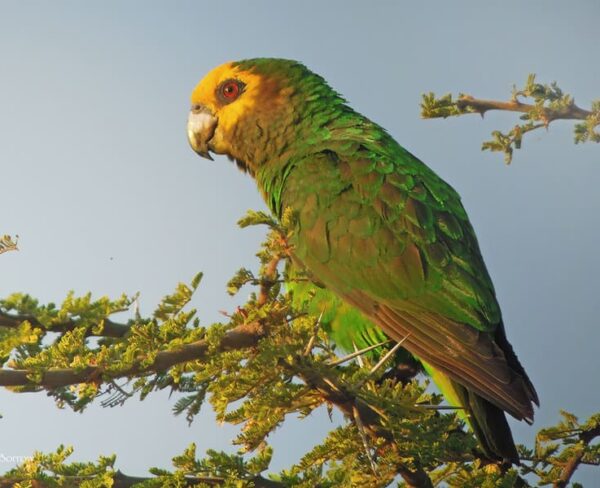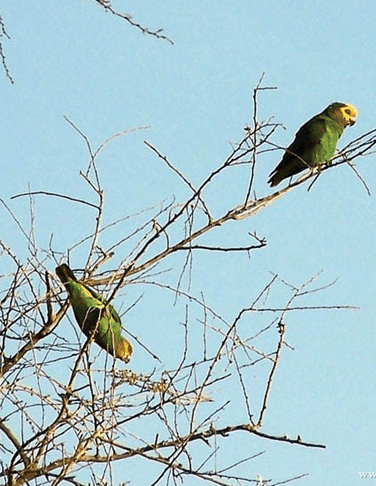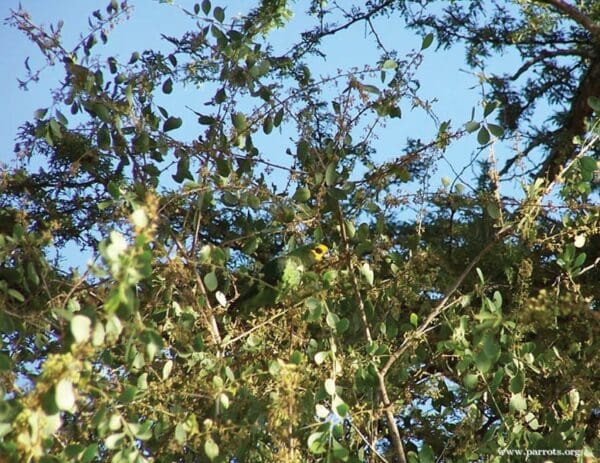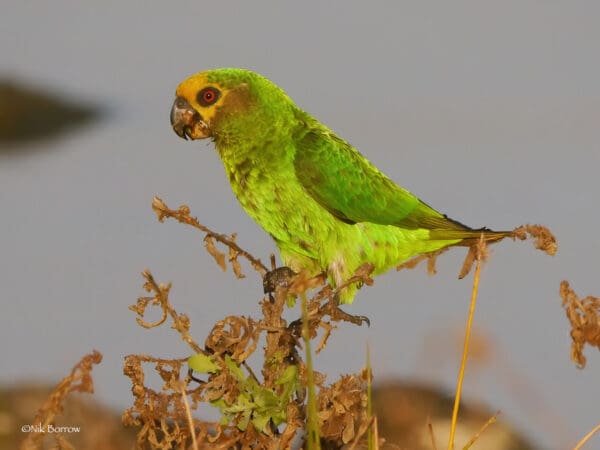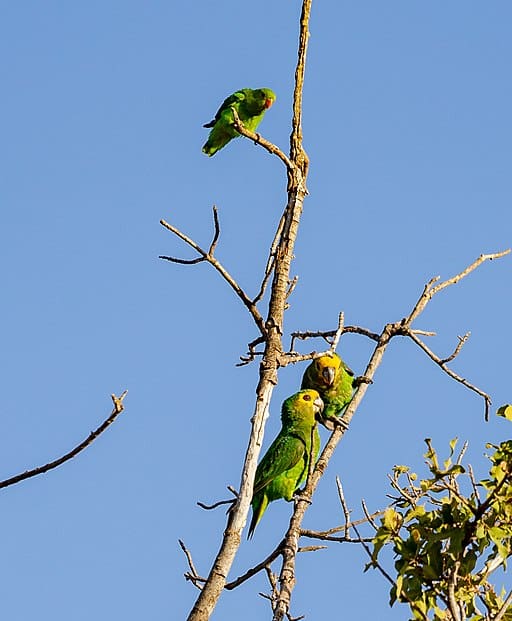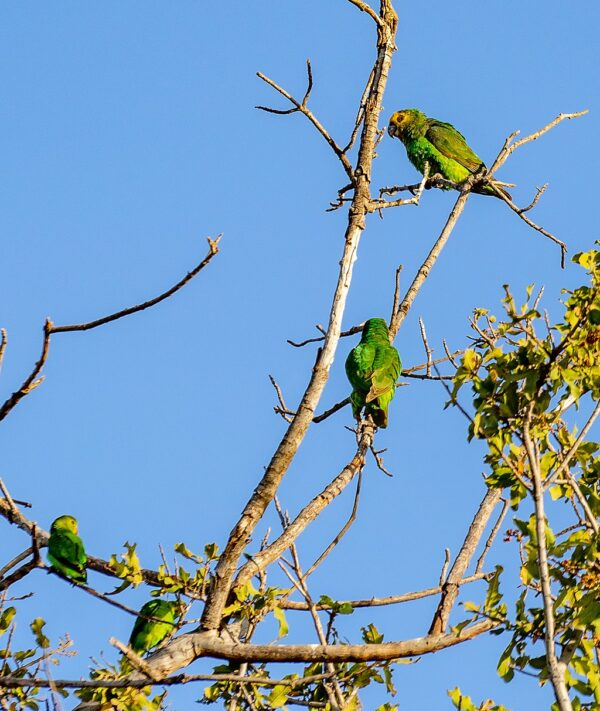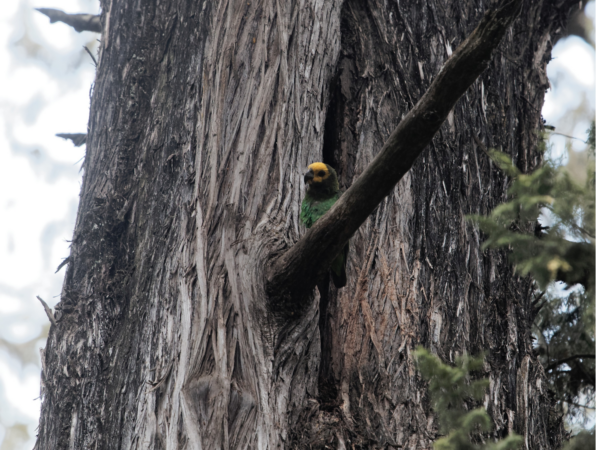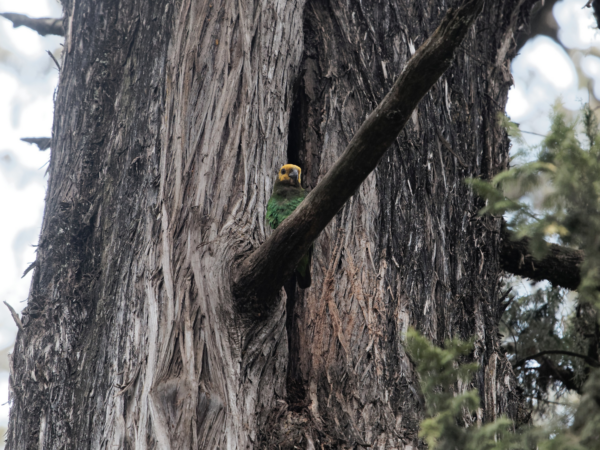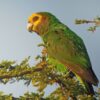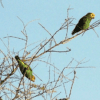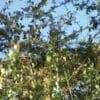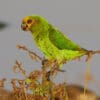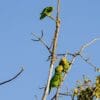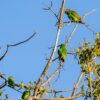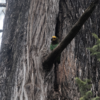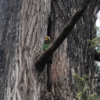Yellow-fronted Parrot
Also known as:
Yellow-faced Parrot, Shoa Parrot
Also known as:
Yellow-faced Parrot, Shoa Parrot
DID YOU KNOW?
Yellow-fronted Parrots are found up to 3000 m (9840 ft) in the highlands of Ethiopia.

Poicephalus

flavifrons
Size:
28 cm (11 in)
Weight:
140–205 g
Subspecies including nominate:
Possibly two: P.f. flavifrons, P.f. aurantiiceps
Colour Adult:
P.f. flavifrons: Medium sized parrot; mainly green plumage with bright yellow face and crown; tail olive/brown; thighs and carpal edge occasionally marked yellow; dark upper, pale lower mandible. Eye orange/red. Bare cere and eye ring grey.
P.f. aurantiiceps: As in flavifrons but face yellow washed with orange.
Colour Juvenile:
As in adult but face duller yellow/olive green. Eye brown.
More Information:
Content Sources:
CITES
Avibase
BirdLife International
Cornell Lab of Ornithology/Birds of the World
A Guide to Parrots of the World, Juniper and Parr, 1998
Parrots of the World, Forshaw, 2006. 2010 edition
Captive Status:
Not found in captivity outside of Ethiopia at present.
Longevity:
—
Housing:
3 x 1 x 2 m (9.8 x 3.3 x 6.5 ft) enclosure with indoor access.
Diet:
Seed mix such as: millet, safflower, paddy rice, wheat, oats, buckwheat, canary grass seed, pine nuts (fresh); millet spray, dry or sprouted; limited sunflower, dry or sprouted; fruits such as: apple, pear, orange, cactus fruits, bananas, figs, mountain ash or rowan berries; vegetables such as: carrots, celery, corn on the cob, green beans and peas in the pod; greenfoods; vitamin supplements; complete kibble.
Enrichment:
—
Nest Box Size:
—
Clutch Size:
Not recorded.
Fledging Age:
—
Hatch Weight:
—
Peak Weight:
—
Weaning Weight:
—
World Population:
Unknown, described as frequent to common. Decreasing.
IUCN Red List Status:
Least Concern
CITES Listing:
Appendix II
Threat Summary:
Not globally threatened. Considered most abundant in the northern, higher parts of its range. Occurs in Abijata-Shala Lakes and Bale Mountains National Parks. May be exposed to increased risk of pest control towards other species. It is considered common in the northern parts of its range. Is considered to have a medium dependency on forest habitat and tree cover is estimated to have declined by 3.9% within its range over the past three generations. Therefore, it is tentatively suspected that this may have led to a 1-19% decline in the species’ population over the same period.
Range:
P.f. flavifrons: Highlands of N Ethiopia, and areas around Addis Ababa in C Ethiopia.
P.f. aurantiiceps: Known only from Masango area and Gilo River, SW Ethiopia.
Habitat:
Found from 1800-3000 m (5904-9840 ft) in Juniperus and Podocarpus forests. Also found in woodlands in cultivated plateau country and in gallery forest in Acacia savanna.
Wild Diet:
Feeds on leaves, possibly seeds and fruits including Dovyalis abyssinica.
Ecology and Behaviour:
Generally found in pairs, small groups or flocks up to 20, often with Black-winged Lovebirds. Probably use same roosting trees each night.
Clutch and Egg Size:
Not recorded.
Breeding Season:
Not recorded.
Related Links:
—
